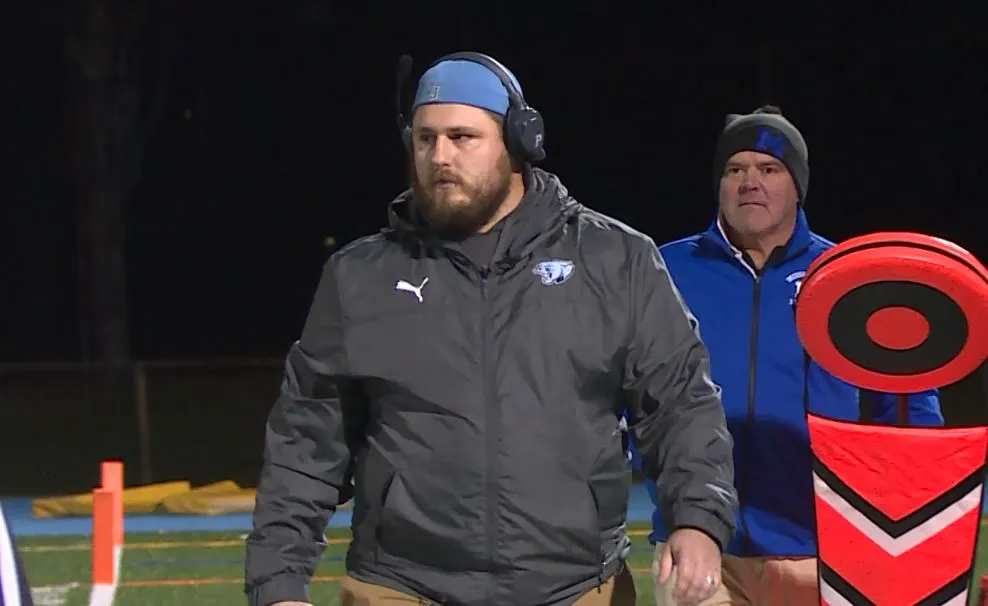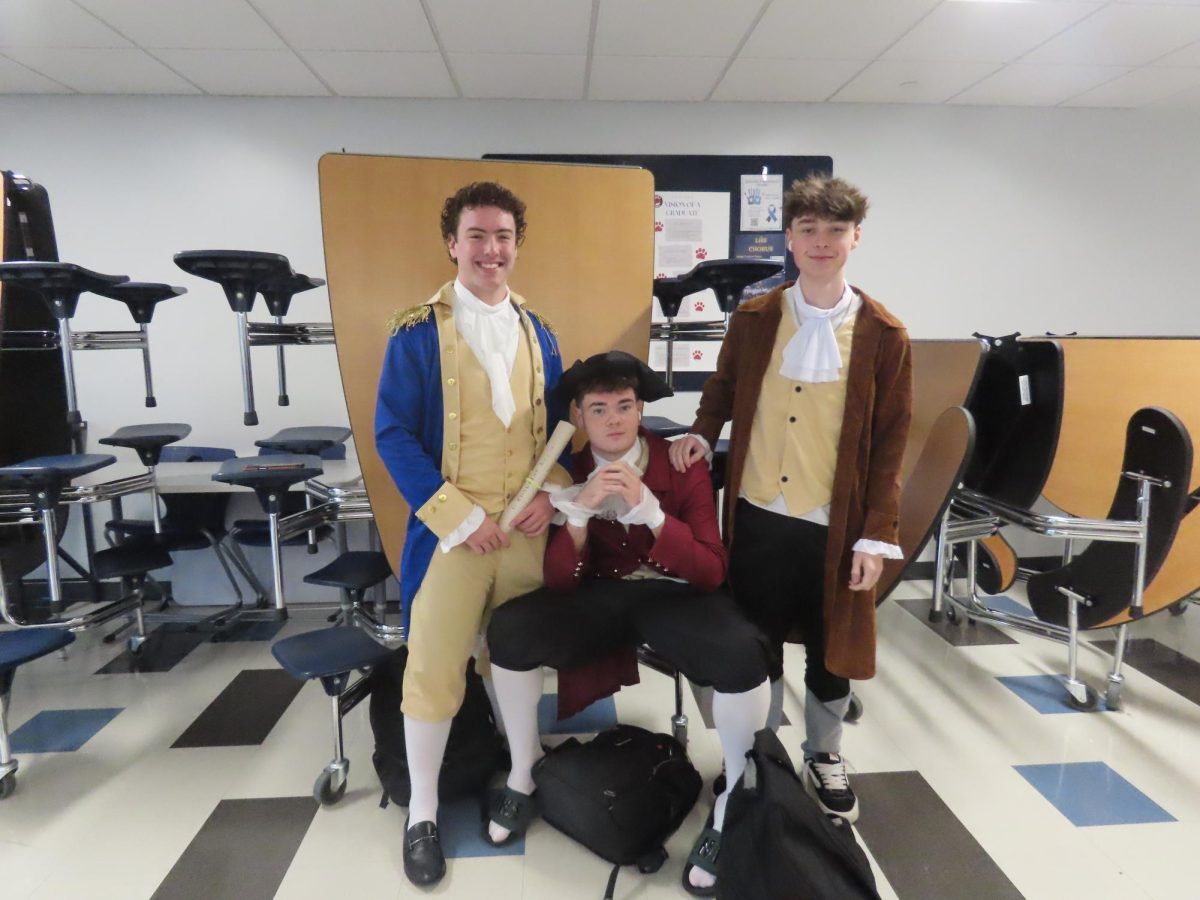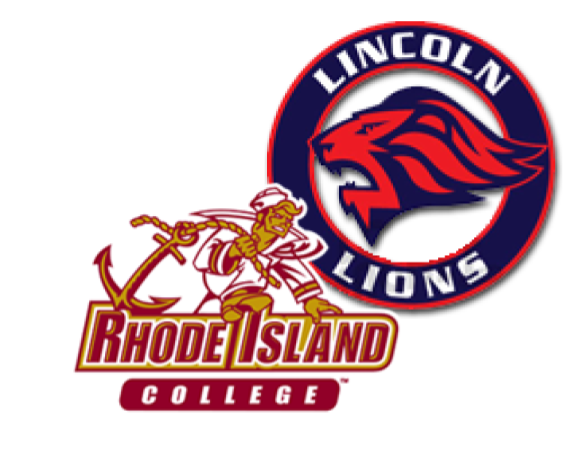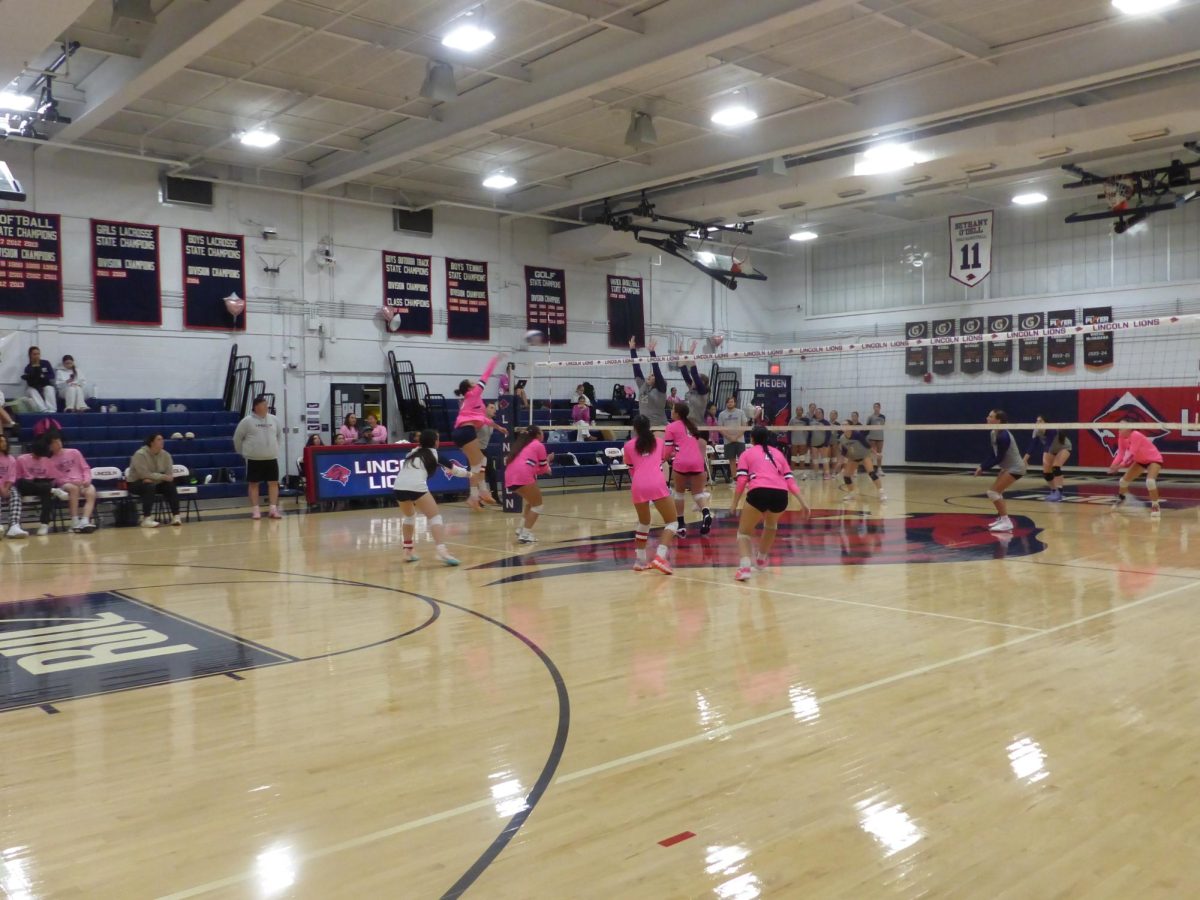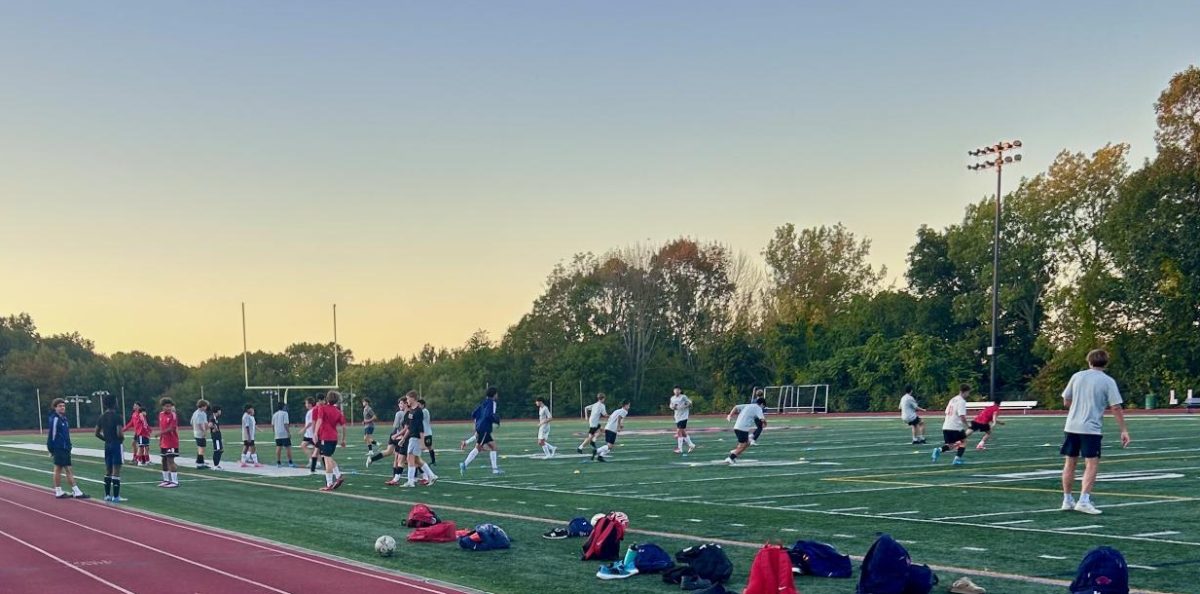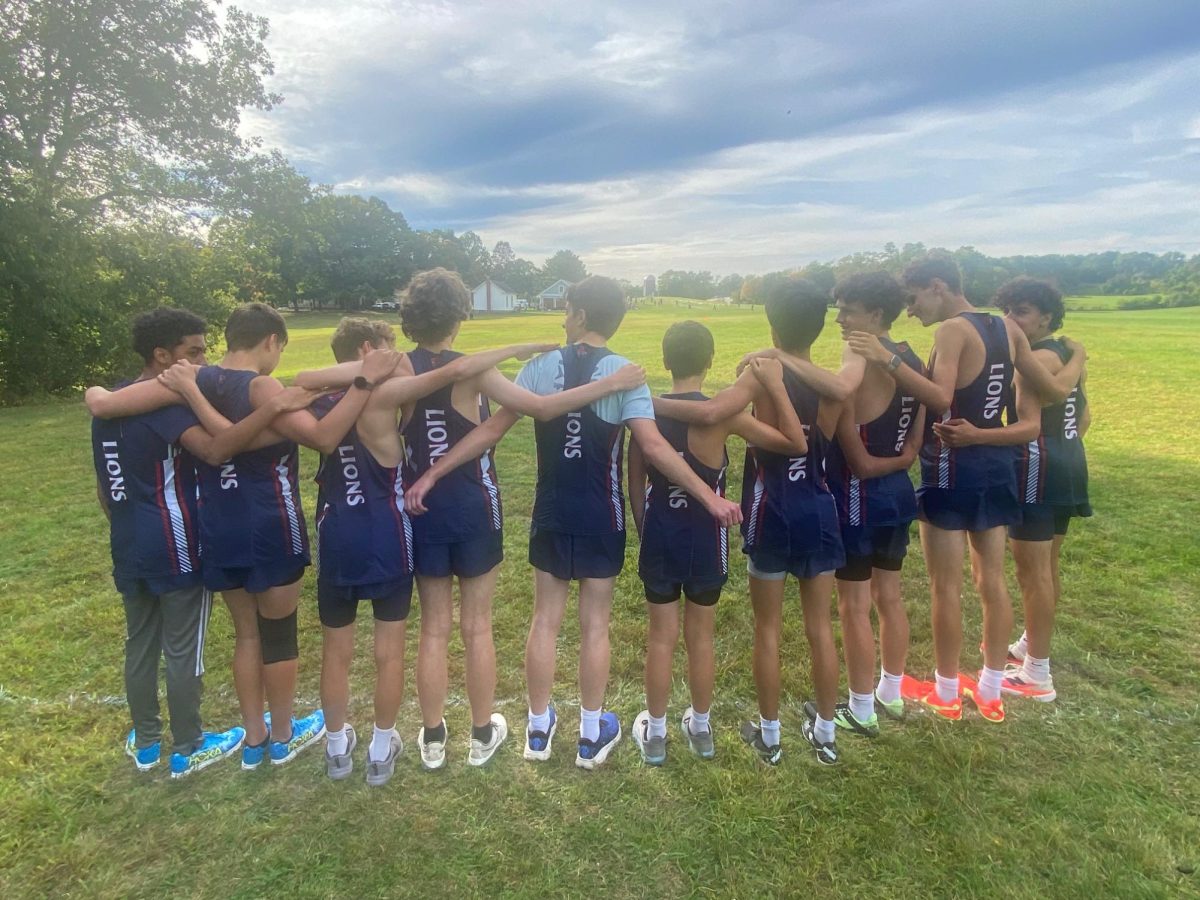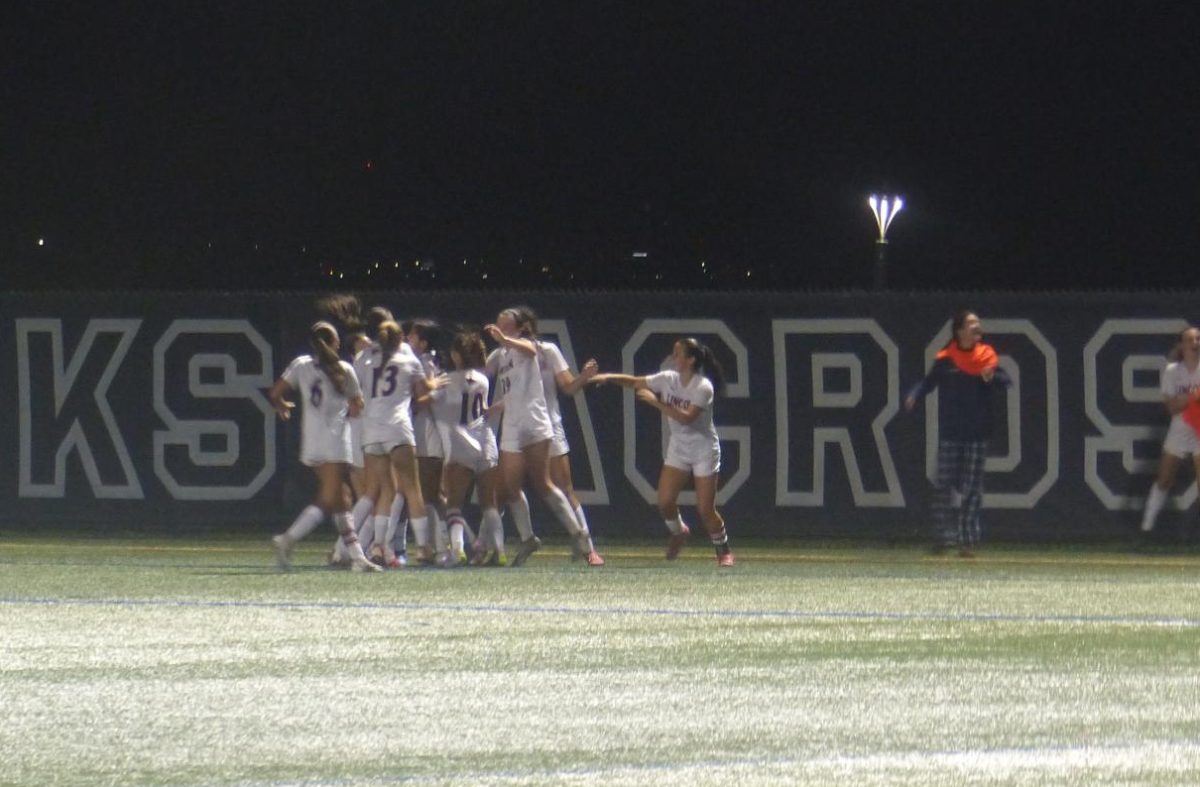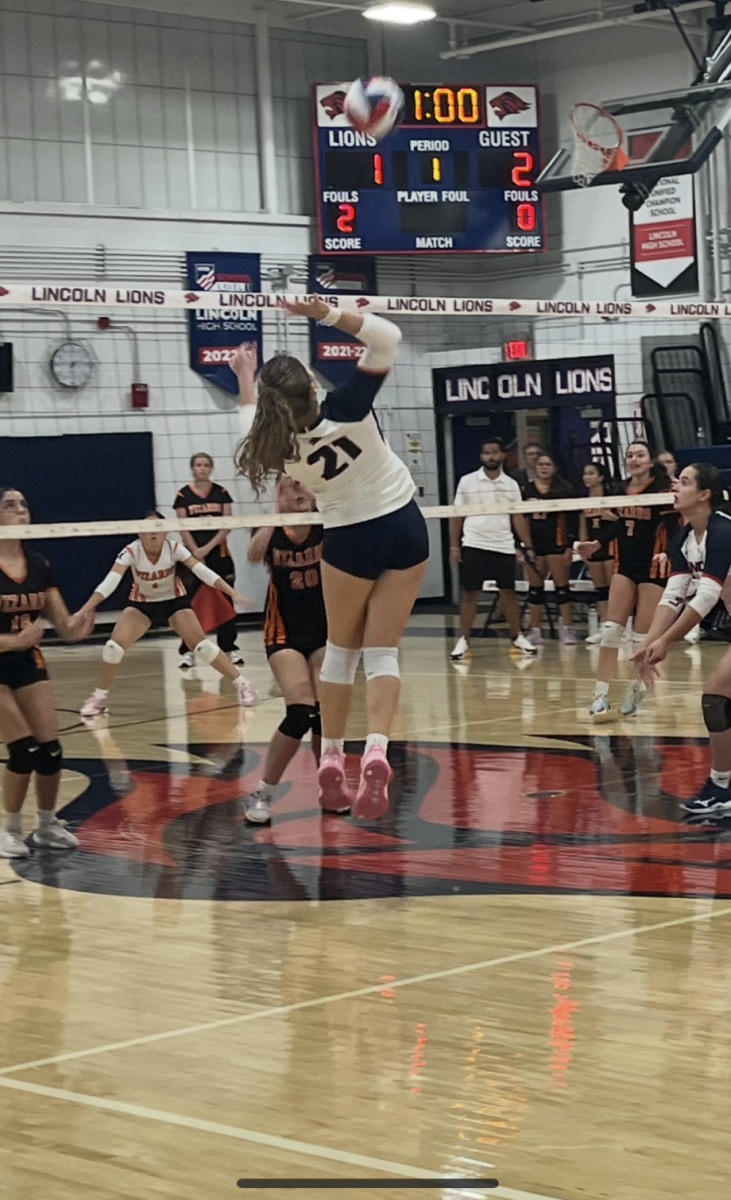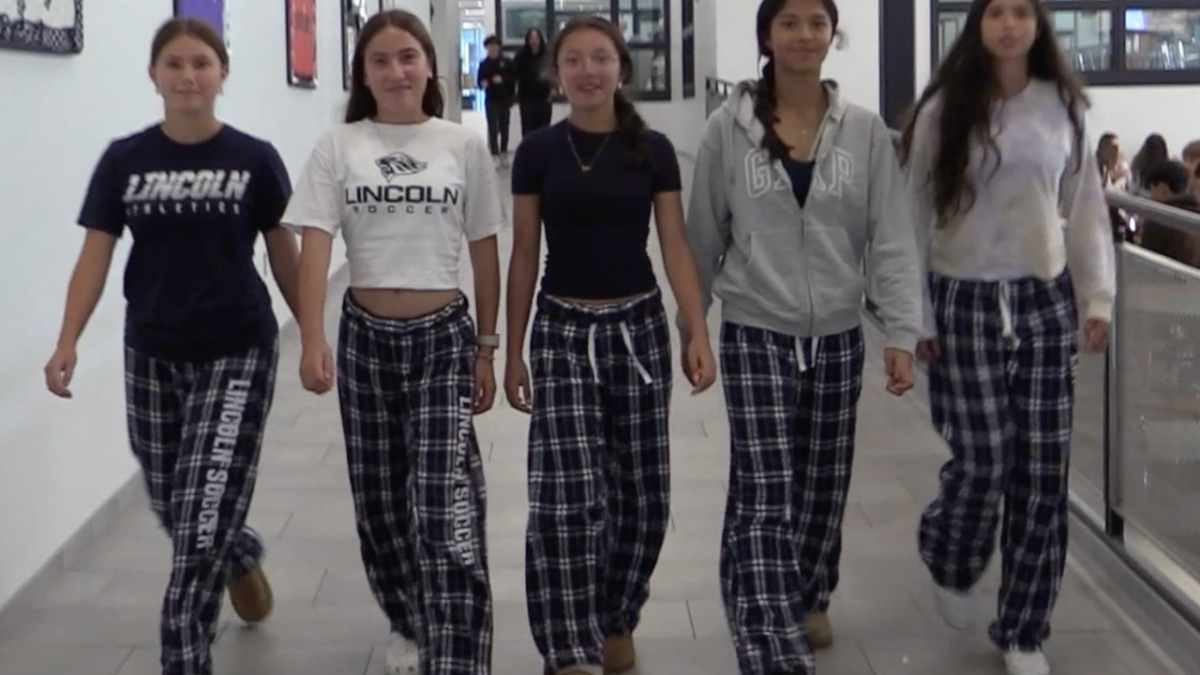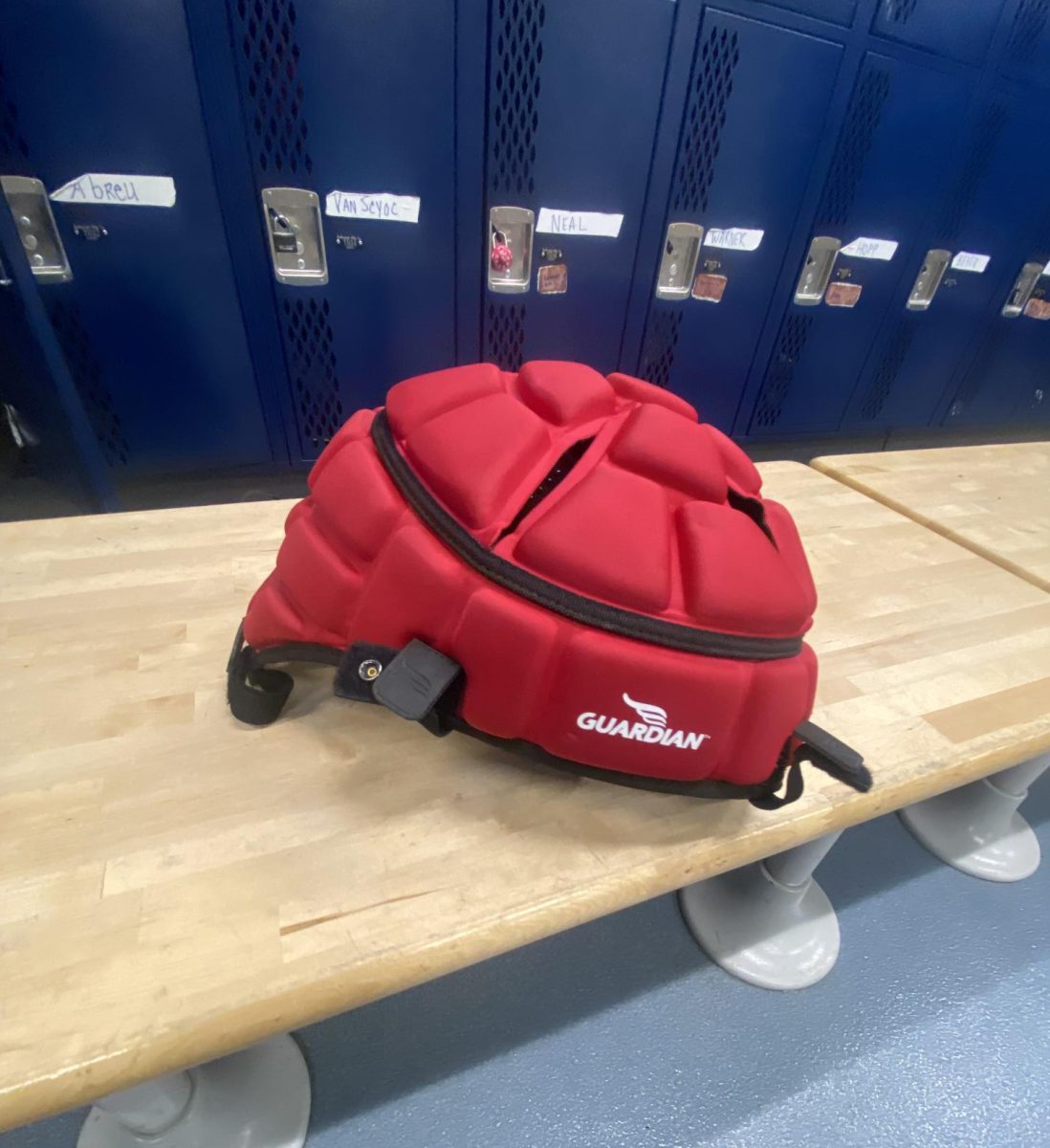There’s a new look to Lincoln Football helmets during weekly practice this year. The helmets will look much larger than usual because of the Guardian caps that all players wear. For all 70 plus football players, Guardian caps have been the new norm around the practice field. The caps have been better protecting Lincoln players in practices and reducing head related injuries.
Mr. O’Connor and the whole Lincoln athletic department’s main focus has been on how to better protect Lincoln Football players. Mr. O’Connor’s main concern is the health and well being of our students, and an investment into Guardian caps was a huge step forward.
“We were lucky enough that we had some money put aside to provide Guardian caps with all athletes, and I think this is a direction you might see more and more high schools going that route. You can see players in the NFL wearing them as well,” said Mr. O’Connor.
For head coach Sean Cavanaugh, Guardian Caps have already become a part of the practice field but a requirement for on field action could be a new way forward in efforts to protect players to provide the safest game possible.
“We have experienced positive results so far by using the Guardian Caps in practice. We also don’t see any negatives to using them [in games] so if they were required it would be a smooth transition for the team,” said Coach Cavanaugh.
Lincoln is one of only a few schools that currently use guardian caps.
“If this is going to help protect our athletes, I’m all for it. We already have them and are only one of very few schools that have them for all our players,” said Mr. O’Connor.
Coach Cavanaugh believes that Guardian caps will also help reduce the risk of injury on the playing field.
“We do feel that it is an effective tool at reducing the risk of injury for our players,” said Coach Cavanaugh. “Anything that is done to promote safety in our sport should be embraced. The sport has evolved quite a bit from the leather helmet days with no pads. Extra safety measures might bring more athletes to the field who had reservations. If that happens, it is definitely considered a good thing.”
Mr. O’Connor believes that guardian caps could be a useful addition beyond just the practice field to protect players here at Lincoln and around the state from brain related injuries on the playing field.
“For the football team, safety is a top priority, ” said Mr. O’Connor. “That’s an investment we want to make, and it’s been shown that if you wear guardian caps on helmets it provides another layer of protection from contact.
Players are of course the ones having to step on the field and take hits, so it has been important for them to buy into this as well.
“Guardian Caps have helped during practice for me,” said sophomore Jackson Warner. “The biggest change I’ve witnessed has been how it has helped reduce the amount of contact injuries.”
Guardian caps may become more common in Rhode Island after an aggressive push for high schools to require the cap by Rep. Joseph McNamara of Cranston and Warwick. McNamara’s focus and plans are to decrease the number of concussion among the sport and protect the neurological system for young athletes, while wanting to see progress later in life after football.
“Several studies have demonstrated that Guardian caps reduce the force of repetitive head impacts in football. They have also reduced the number of concussions by 52% in the NFL preseason,” said McNamara.
McNamara believes that implementing guardian caps could be beneficial in reducing concussions and even further be able to reduce other neurological problems later in a players life.
The main reasons for the push are better head protection in game action, as there have been spikes in traumatic brain injuries in football over the last 50 years. McNamara hopes that the proposal will get passed, but it is a lengthy process and could take some time, but McNamara hopes it will become a law before the end of this year.
“The legislative system does not exactly move at light speed. It is a very deliberative process that will include multiple hearings in both the House and the Senate with opportunities for the public to testify, both pro and con. That being said, I hope that it will become law this year,” said McNamara.





